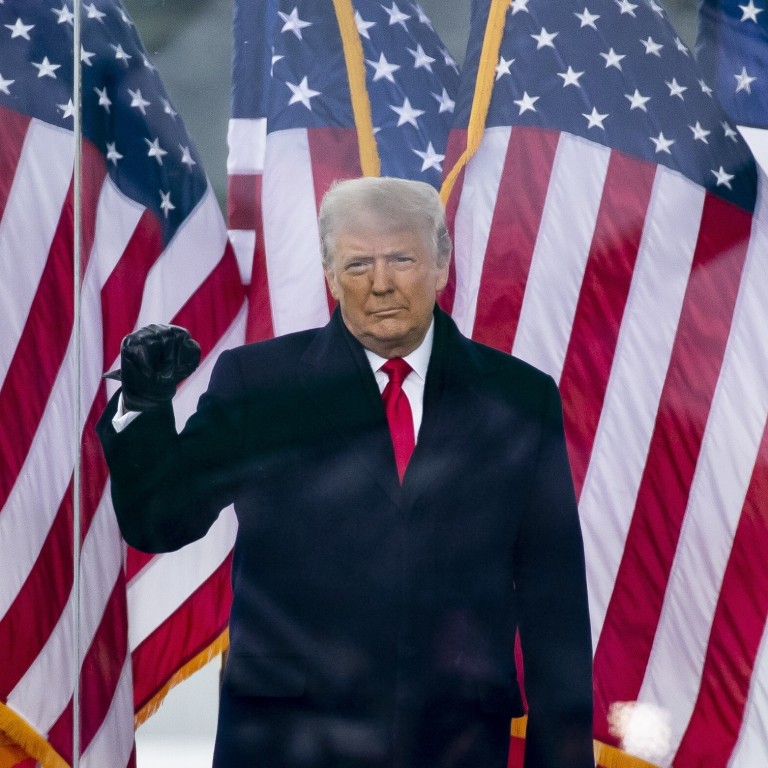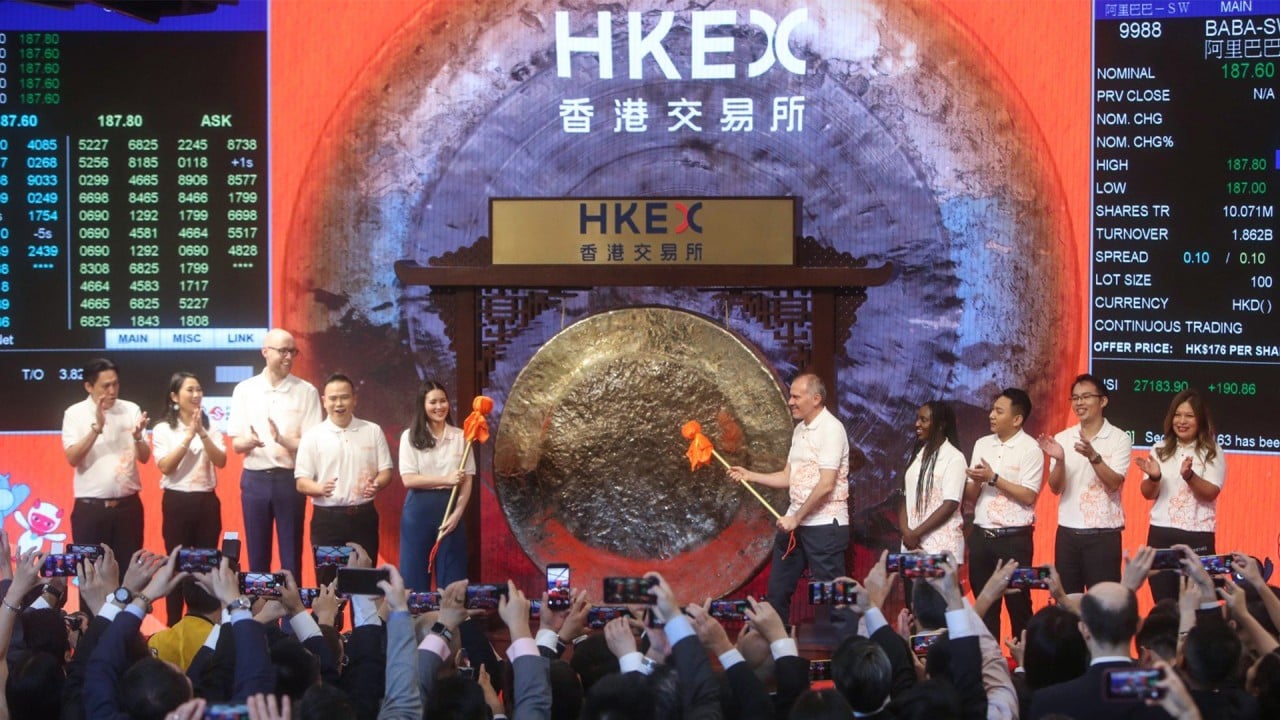
US investors holding US$1 trillion of Chinese stocks in a spot of bother as Trump’s investment ban nears
- US investors holding a combined US$1 trillion of Chinese stocks may be forced to trim their portfolios after Trump endorses orders to curb investments
- Half of the holdings are in the form of ADRs and institutional investors account for 86 per cent of the exposure to Chinese equities, according to Goldman Sachs
There are less than two weeks left in US President Donald Trump’s term, but his endorsement of a deluge of bills and executive orders in his final few days in office is causing chaos for American investors who hold about US$1 trillion of stocks in Chinese companies.
That will probably cause a shake-out in the portfolios of Chinese stocks owned by US investors. Half of the US$1 trillion holdings are held via American depositary receipts (ADRs), and mutual funds and hedge funds account for 86 per cent of the total exposure, according to data by Goldman Sachs.
US investors held 62 per cent of Alibaba’s ADRs as of January 3 and the US ownership of Tencent’s US-traded surrogate securities was 87 per cent, according to data compiled by Bloomberg.
This week, the NYSE first reversed its earlier decision to boot out China Telecom, China Unicom and China Mobile before saying that it would still proceed with the move following a clarification from the Treasury Department.
A US fund-management firm that invests in Chinese stocks, which did not want to be identified, said that it was still assessing the implication and has not started adjusting its portfolio, given the recent chaotic and confusing headlines on the delisting issue. There is still a chance that the restrictions on China investments will be eased or revoked, with President-elect Joe Biden taking office on January 20, it said. Although Biden is expected to maintain a tough stance on China, his policies are likely to be more predictable.
“Amid the global economic downturn, American investors who invest in Chinese companies will, to a considerable extent, lose the upside of the Chinese market, which will bring huge losses to their investment returns,” said Wang Huiyao, president of Centre for China and Globalization, a Beijing-based think tank. “Trump’s move shows that he doesn’t care about the interests of American enterprises and investors at all. To me Beijing doesn’t even need to respond to this, because this is a matter that will largely hurt the interests of the US itself.”

02:02
Chinese e-commerce giant Alibaba starts trading on Hong Kong stock exchange
The sentient was echoed by Ding Yifan, former deputy director and senior fellow of the Institute of World Development, Development Research Center of the State Council
“I think the US won’t be able to persist in this delisting thing, because it will bring more losses to American investors,” Ding said. “This is purely a decision made by people who don’t know the financial market at all. Perhaps Biden’s administration will rationally consider the gains and losses after taking office.”
Some 217 Chinese companies are listed in the US with a total market capitalisation of US$2.2 trillion.
Could there be an exodus of Chinese tech stocks from US markets?
With additional reporting by Rachel Zhang in Shanghai

